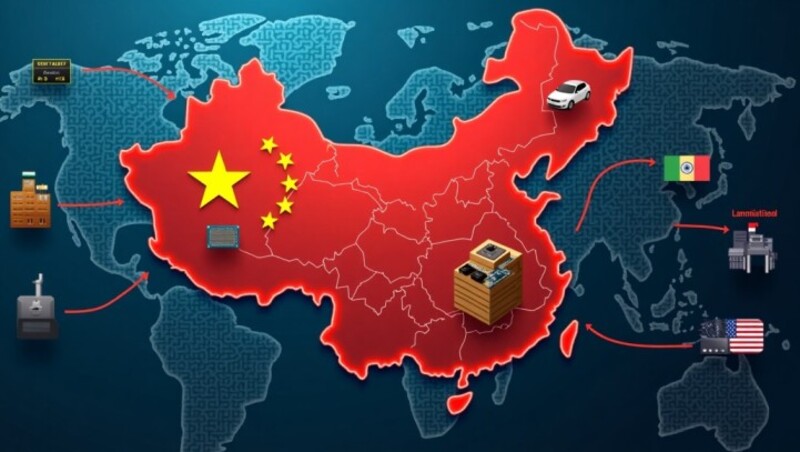 Nissan Ariya, an all electric crossover SUV. Photo Credits: Nissan Global
Nissan Ariya, an all electric crossover SUV. Photo Credits: Nissan Global
Nissan's Global Overhaul: Restructuring Amidst The Chinese Ev Revolution
China’s Dominance in Global Auto Sales
The Asian auto industry continues to dominate the global auto sales, with China being the biggest contributor to the global auto sales. As of March 2024, Chinese car auto sales accounted for 33% of the world’s car sales. The significant market share highlights the growing influence of China in the auto industry in times of electric vehicles (EVs) and new energy vehicles (NEVs).
NISSAN’s Struggles Amid Rising Chinese Competition
This has affected other automakers in the Asian region. Japanese automaker, NISSAN has had to go back to the drawing board to restructure its operations in Thailand. NISSAN has enjoyed a significant market share in the region for a long time. The automaker is expected to cut 9000 jobs globally. The rise of Chinese auto giants like BYD has been a pain to NISSAN as the company faces stiff competition due to the influx of Chinese EVs in Thailand.
Impact of Chinese EVs on the Asian Auto Market
NISSAN's challenges are attributed to the technological advancements in the Chinese automakers and their affordability capturing a significant market share in Asia and the global arena. These unprecedented factors have forced NISSAN to announce restructuring by streamlining its operations and cutting down on costs. The company is expecting to put on hold and consolidate some of its operations in Thailand and other regions.
NISSAN’s Restructuring Strategy in Thailand
The company’s financial performance has been affected by market trends such as increased use of electric vehicles and post-COVID-19 pandemic effects. The company also faces a decline in sales which has negatively impacted its financial performance. The company reported a decline in sales by 33% in the year ended 2023. By consolidating its operations and cutting down on jobs, NISSAN expects to increase its efficiency and improve its financial performance. The company has insisted that it's not looking forward to shutting down its operations in Thailand, but rather adapting to the new dynamics in the auto industry market.
Thailand’s Favorable Policies for Chinese EV Automakers
The rise of EVs in Thailand has not only been due to heavy investment by the Chinese government through the provision of subsidies in promoting EVs automakers such as BYD and SAIC, but also Thailand’s government has a soft spot for the Chinese EVs by enacting policies that enable them to thrive. This has made the Chinese EVs cheaper and more appealing to consumers as compared to other competitor brands from other countries.
Shifting Market Share in Thailand and Beyond
The popularity of Chinese EVs has diminished the Japanese market share in Thailand as well as in the global space. The restructuring efforts in cutting down costs by NISSAN in Thailand highlight the changing dynamics in the auto space due to the increased usage of Chinese cars by consumers.
Lessons for the Future of the Global Auto Industry
It also puts on notice other auto players in the industry to rethink their approach in the auto market. For NISSAN and other car companies in Thailand and other regions, to avoid disruption and experience success, they will have to be more innovative and adapt to the current times, failure to which they shall be wiped out of the indust



